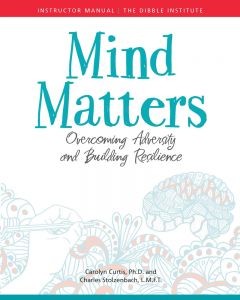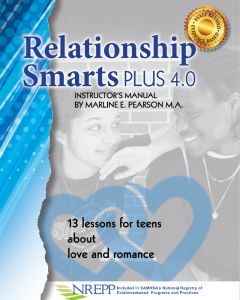Special Webinar: Harnessing ARP Funds for Student & Early Childhood Success
Thursday, February 17, 2022, 3:00 pm Eastern/12:00 pm Pacific
Description: School Districts and local governments are getting unprecedented funding to help them respond to the challenges of the pandemic. This webinar focuses on two key questions:
- How do we get the most value for those dollars?
- How do we make it easier to actually get results?
Although there are no “silver bullets” to address the complex challenges around Adverse Childhood Experiences (ACEs), students’ emotional well-being, and early childhood development, there are many promising and proven “ingredients” that can be part of a successful “recipe” to get breakthrough results. This webinar focuses on five “secret sauce” ingredients that can enhance and amplify investments to help infants, children, and youth to thrive. Prior webinars focus primarily on the process, techniques and programs for collaboration to help students thrive, but this webinar emphasizes specific programs or innovations that can be incorporated into those strategies.
- Innovative technology that uses singing to accelerate the development of reading skills
- Proven programs to help students have healthier relationships
- Strengthening community-wide approaches for early childhood brain development to reduce disparities in kindergarten readiness
- Social-Emotional Learning programs that can be economically scaled up in your community
- A high-value technology “dashboard” that improves strategy implementation
If you care about the success of young children and students in your community, and if you want American Rescue Plan dollars to have a lasting impact, then you’ll find a lot of value in this webinar.
You’ll learn about ways to:
- Engage more community partners in helping students succeed
- Use the latest brain science to help children overcome obstacles
- Take advantage of big investments in building tools & technology
- Improve community teamwork for addressing Social Determinants of Education
- Deliver the outcomes that ESSER funding is intended to enable
$122 Billion in ESSER Funding Available to Address Social-Emotional Learning and Mental Health Supports
This opportunity for communities and schools to partner together is a rare one-time funding opportunity to provide needed relief from adult and student trauma surrounding the COVID-19 Pandemic. Dibble’s program, Mind Matters: Overcoming Adversity and Building Resilience, can support youth and adults in gaining social-emotional learning skills as well as build resilience by addressing the trauma they have experienced.
For more explanation on ESSER funds and community-based American Rescue Plan Funds, please visit this website.
NOTE: Organizations are more likely to receive ESSER or local ARP funds by contacting their local school districts and governments to advocate for whole-child supports and interventions.
ESSER Information and Next Steps
ESSER (Elementary and Secondary Schools Emergency Relief) funds were part of three separate stimulus bills:
- ESSER– Section 18003 of CARES Act, March 2020
- ESSER II– Section 313 of CRRSA Act, December 2020
- ARP ESSER (ESSER III)– Section 2001 of American Rescue Plan Act, H.R. 1319, March 2021
Funding is meant to help schools safely reopen and provide equitable services that address the physical, mental, and social and emotional needs of students.
For ESSER III funds, states must use 5% of funds to address learning loss. 1% of funds must go to evidence-based summer enrichment programs, with another 1% dedicated to comprehensive afterschool programs.
The Local Education Agencies (ie districts) must reserve at least 20% of the funding they receive to address learning loss. Addressing learning loss may include social and emotional learning supports as well as building resilience in students and staff alike.
All of these programs must “respond to students’ academic, social, and emotional needs and address the disproportionate impact of COVID-19 on underrepresented student subgroups.”
Title I schools are receiving 6-7 times the normal amount of funding through ESSER III they would normally receive in a year.
This is a unprecedented opportunity to provide trauma-informed resilience training, professional development, and student psycho-educational programing.
Of the total amount allocated to an LEA from the State’s ARP ESSER award, the LEA must reserve at least 20 percent of funds to address learning loss through the implementation of evidence-based interventions and ensure that those interventions respond to students’ social, emotional, and academic needs and address the disproportionate impact of COVID-19 on underrepresented student subgroups (each major racial and ethnic group, children from low-income families, children with disabilities, English learners, gender, migrant students, students experiencing homelessness, and children and youth in foster care).
Remaining LEA funds may be used for a wide range of activities to address needs arising from the coronavirus pandemic, including any activity authorized by the ESEA, the Individuals with Disabilities Education Act (IDEA), Adult Education and Family Literacy Act (AEFLA), or Carl D. Perkins Career and Technical Education Act of 2006 (Perkins CTE).
Specifically, ARP ESSER funds may be used to develop strategies and implement public health protocols including, to the greatest extent practicable, policies in line with guidance from the Centers for Disease Control and Prevention (CDC) on reopening and operating schools to effectively maintain the health and safety of students, educators, and other staff, as well as:
- coordinating preparedness and response efforts with State, local, Tribal, and territorial public health departments to prevent, prepare for, and respond to COVID-19;
- training and professional development on sanitizing and minimizing the spread of infectious diseases;
- purchasing supplies to sanitize and clean the LEA’s facilities;
- repairing and improving school facilities to reduce risk of virus transmission and exposure to environmental health hazards;
- improving indoor air quality;
- addressing the needs of children from low-income families, children with disabilities, English learners, racial and ethnic minorities, students experiencing homelessness, and foster care youth;
- developing and implementing procedures and systems to improve the preparedness and response efforts of LEAs;
- planning for or implementing activities during long-term closures, including providing meals to eligible students and providing technology for online learning;
- purchasing educational technology (including hardware, software, connectivity, assistive technology, and adaptive equipment) for students that aids in regular and substantive educational interaction between students and their classroom instructors, including students from low-income families and children with disabilities;
- providing mental health services and supports, including through the implementation of evidence–based full-service community schools and the hiring of counselors;
- planning and implementing activities related to summer learning and supplemental after-school programs;
- addressing learning loss; and
- other activities that are necessary to maintain operation of and continuity of and services, including continuing to employ existing or hiring new LEA and school staff
LEAs may provide these services themselves. They may also choose to contract them out to community partners. If your school needs evidence-based strategies for their funds, try one of the strategies from the Covid Relief Playbook: Smart Strategies for Investing Federal Funding
Secretary of Education Miguel Cardona encouraged schools to spend the federal stimulus money they receive through the American Rescue Plan Act in ways that will support students’ emotional needs. Cardona also said that even though the stimulus money is a one-time windfall, schools shouldn’t hesitate to spend those funds immediately.
“The reality is we’re coming out of a crisis,” he said. “Our kids are hurting. They need help now.”
Setting goals, asking for help, showing empathy . These are all examples of social-emotional skills that help students thrive—both in and out of the classroom. There are many benefits to social-emotional learning (SEL). In fact, some researchers argue that these skills are foundational to learning and can be even more important than academic skills.
When students have limited social-emotional skills, they’re more likely to struggle when they face a new challenge or conflict, such as the COVID 19 pandemic. In fact, one study shows that 70 percent of students who drop out of school do so not because they lack the ability to do the work. They drop out because they lack the social-emotional skills to navigate challenges.
That’s not to say that teaching SEL is a solution for all of the challenges students face That’s one of several myths about SEL . But there’s a lot that can be done in schools to make a significant positive impact. It starts with growing the social-emotional skills of adults.
- Determine where your district and school are in the ESSER planning process.
- Get curious about their plans.
- If plans are not yet formulated, consider adding the psycho-educational program Mind Matters as a way to broadly support students and staff. because it can be taught by non-clinicians. Mind Matters can be taught in 12 one hour lessons or 21 twenty minute sessions.
- Request a review copy of Mind Matters for you and other decision-makers by emailing Emily@ DibbleInstitute.org
- Please call us at 800-695-7975 to discuss implementation approaches.
- Google “ESSER and Name of your state” then google “ESSER and Name of your District” to research their plans.
- Call your local district(s) Student Services office or other office charged with SEL or school climate. If all else fails, call the Superintendent.
- Get curious. Ask about their ESSER plans for supporting student’s mental health and well-being through SEL.
- Ask how you can help as a contractor to provide:
- psycho-educational programing to their students during the summer or in out-of-school time
- professional development for staff on building their own social-emotional learning.
- Ask if the district will be releasing a Request for Proposals (RFP) that you can respond to.
- If you are not familiar with Mind Matters, request a review copy by emailing Emily@ DibbleInstitute.org.
- Call us at 800-695-7975 to brainstorm implementation approaches with students and staff.
Dibble Programs to Support SEL and Mental Health
People experiencing trauma and toxic stress often have difficulty regulating their emotional responses when facing challenges in school and life, such as those surrounding the COVID-19 pandemic.
Mind Matters’ lessons teach both adults and youth how to heal from trauma and negative experiences, building their resilience and self-regulation. The program incorporates the latest neuroscience research for effectively responding to trauma and managing stress. It also includes all the domains of social and emotional learning: self-awareness, self-management, relationship skills, responsible decision making, and social awareness.
Mind Matters may be facilitated by a paraprofessional, making it ideal for a setting where the mental health needs of students and adults are expansive due to the COVID-19 pandemic.
Mind Matters has been approved by the Los Angeles County Department of Mental Health as a Prevention and Early Intervention (PEI) Resource.
If you would like a free, online review copy of Mind Matters, please email Emily@ DibbleInstitute.org.

Love Notes is an evidence-based program ready to use in building social and emotional skills in a vulnerable youth. It is a strengths-based and inclusive program often used with older youth, youth in care, and those who have experienced early adversity. For those addressing learning loss and school attachment during summer or after-school programs, Love Notes is a great program because it is so engaging for young people.
Love Notes has been approved by the Los Angeles County Department of Mental Health as a Prevention and Early Prevention Resource.
If you would like an free, online review copy, please email Emily@ DibbleInstitute.org.

Relationship Smarts PLUS is a comprehensive Relationship Education program ready to use in building social and emotional skills in teenage youth. Key topics include self-awareness, developing healthy relationships, warning signs, communication and conflict, decision making skills, and more. For those addressing learning loss and school attachment during summer or after-school programs, Relationship Smarts is a great program because it is so engaging for young people.
If you would like a free, online review copy, please email Emily@ DibbleInstitute.org.

We have tools and information to help respond to ESSER funding request. If you have questions or need for support in your application for ESSER funds, call us at 800-695-7975 or email us at relationshipskills@dibbleinstitute.org.

